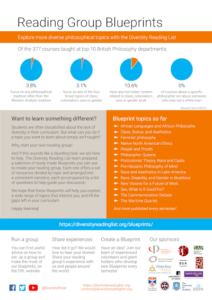The summer is definitely over, the semester is definitely under way – and we are slowly returning back to Earth from the clouds of our 10th Anniversary celebrations. And we have news for you!
News
The 10th Anniversary Conference
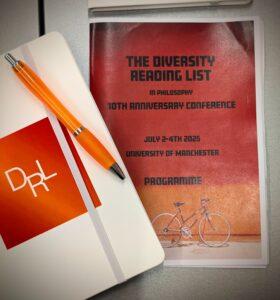 In July, we celebrated 10 years of the DRL with an excellent 2.5-day conference in Manchester. We were extremely happy to be able to host so many excellent speakers and facilitate really interesting discussions ranging from the topics of motherhood and queer discrimination, through highlighting the contributions of philosophers previously written out of history and the role of language in philosophising, to a number of practical recommendations for curriculum and research diversification. You can find recordings from those sessions on our YouTube Channel – check them out!
In July, we celebrated 10 years of the DRL with an excellent 2.5-day conference in Manchester. We were extremely happy to be able to host so many excellent speakers and facilitate really interesting discussions ranging from the topics of motherhood and queer discrimination, through highlighting the contributions of philosophers previously written out of history and the role of language in philosophising, to a number of practical recommendations for curriculum and research diversification. You can find recordings from those sessions on our YouTube Channel – check them out!
The conference was also an excellent opportunity for the DRL Team to meet. We were very happy to see so many of our past and present volunteers and collaborators to join us there and celebrate our joint achievement. Once again – huge thanks to all of you for your amazing work!
Recategorisation complete
At the Anniversary Conference, we made a great reveal – our project to re-categorise philosophy in a fair and inclusive key is complete! We are very proud to have updated the DRL website with a proof-of-concept system which aims to be inclusive by default, inspiring you to find and engage with scholarship from a wider range of traditions. You can read all about our new system on the info page we put together. And you can try it out simply by using the list, browsing through the new Topic categories, finding entries by Keyword or Figure, or filtering search results using by Topic, Tradition, Language and Time. We hope that you find our new system useful and we are looking forward to your feedback!
In the meantime, we will aim to promote this new approach with other resources, using the DRL as a proof of concept which might inspire to also adopt more inclusive ways of categorising philosophy.
New Editors
Following the creation of new Topic categories, we have now recruited a number of new Editors to help us manage those new topics. We were really surprised by how many applications we received – thank you so much for your interest and engagement! After much deliberation, we welcome to our team Veronica Cibotaru and Ravi Thakral (Philosophy of Language), Alnica Visser (Philosophy of Mind), Henry Krahn (Political Philosophy), Zoé Grange-Marczak (Phenomenology) and Alex Thinius (Social Philosophy). It’s great to see the DRL family grow!
We are still interviewing more applicants and would like to invite people who might want to take over Tradition-specific editorships. If this is something you would like to do, please get in touch!
Volunteer Spotlight: Lucija Duda (she, her)

I am a soon-to-be PhD graduate from the University of Manchester. I work on feminist philosophy and metaphilosophy. I am interested in the resistant writing and speaking practices that allow marginalised philosophers to inscribe their selves into the philosophical text and speech. I examine what these practices reveal about philosophical style, the boundaries of philosophy, and silencing in professional philosophy.
I joined the DRL as a volunteer to organise the DRL Anniversary Conference. Together with Joseph Bentley and Justina Beršktyė, as Manchester-based volunteers, we ensured that this exciting event ran smoothly from our end. From dealing with more formal and bureaucratic things to helping with the search for potential speakers, it was an overall great and enriching experience. The most rewarding aspect was being part of a community that continuously works towards decentralising and decolonising the Western canon through various educational initiatives, metaphilosophical approaches, and works dedicated to issues of importance to marginalised and underrepresented groups in philosophy. It was very inspiring to exchange knowledge with all the speakers and other DRL volunteers, support each other’s work, and explore new ways to improve philosophy for the better. I look forward to exploring more volunteering opportunities with the DRL.
Get involved, get funded!
We continuously expand our list and you can help us by contributing content via our contribution page.
We couldn’t do what we do without the help of our fantastic volunteers. Check out our Volunteer Page to find out more, and join the Team! There are so many ways to get involved: creating new Reading Group Blueprints; becoming an editor; adding new list entries; organising events, promoting, and much more.
As a volunteer, you will also have access to the funding we receive for various projects we run. Get in touch to find out more!
Thanks so much again for all your support,
The DRL Team
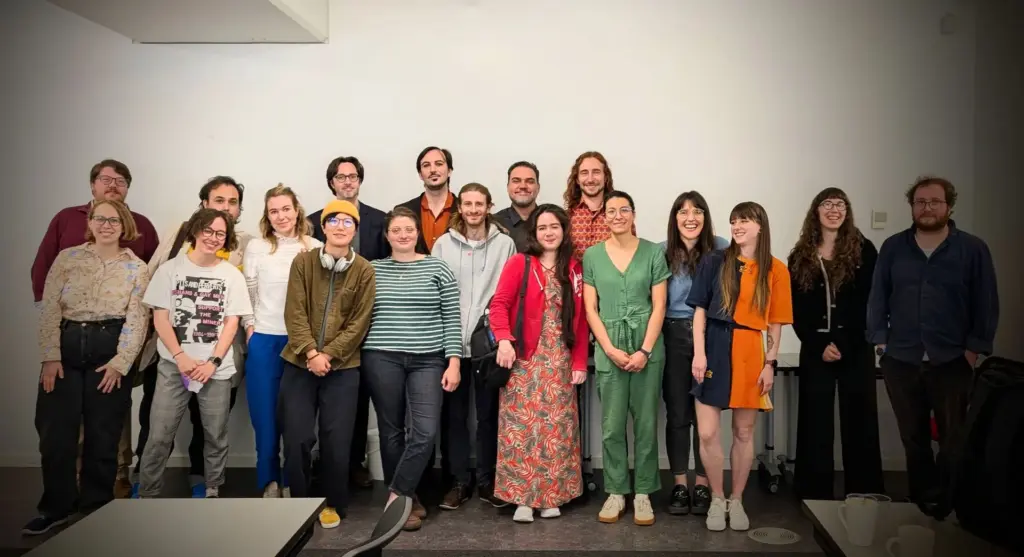
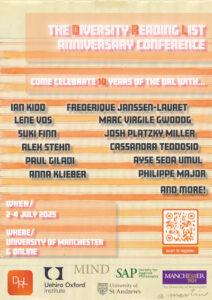
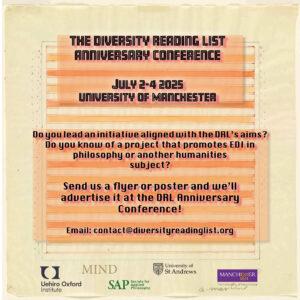


 I am a mathematician-turned-philosopher. I specialize in logic and philosophy of mathematics but have been slowly branching out into social epistemology (especially matters of epistemic injustice) and philosophy of gender. My PhD work focused on making sense of a particular kind of nonclassical mathematical practices (so-called “inconsistent mathematics”) and culminated in providing a queerfeminist reconceptualization of the field. More generally, I am very interested in the ideas of alternative mathematics and feminist mathematics. My approach to these topics is practice-based, starting from what logicians and mathematicians actually seem to do, as opposed to what philosophers think they do or should do.
I am a mathematician-turned-philosopher. I specialize in logic and philosophy of mathematics but have been slowly branching out into social epistemology (especially matters of epistemic injustice) and philosophy of gender. My PhD work focused on making sense of a particular kind of nonclassical mathematical practices (so-called “inconsistent mathematics”) and culminated in providing a queerfeminist reconceptualization of the field. More generally, I am very interested in the ideas of alternative mathematics and feminist mathematics. My approach to these topics is practice-based, starting from what logicians and mathematicians actually seem to do, as opposed to what philosophers think they do or should do.


